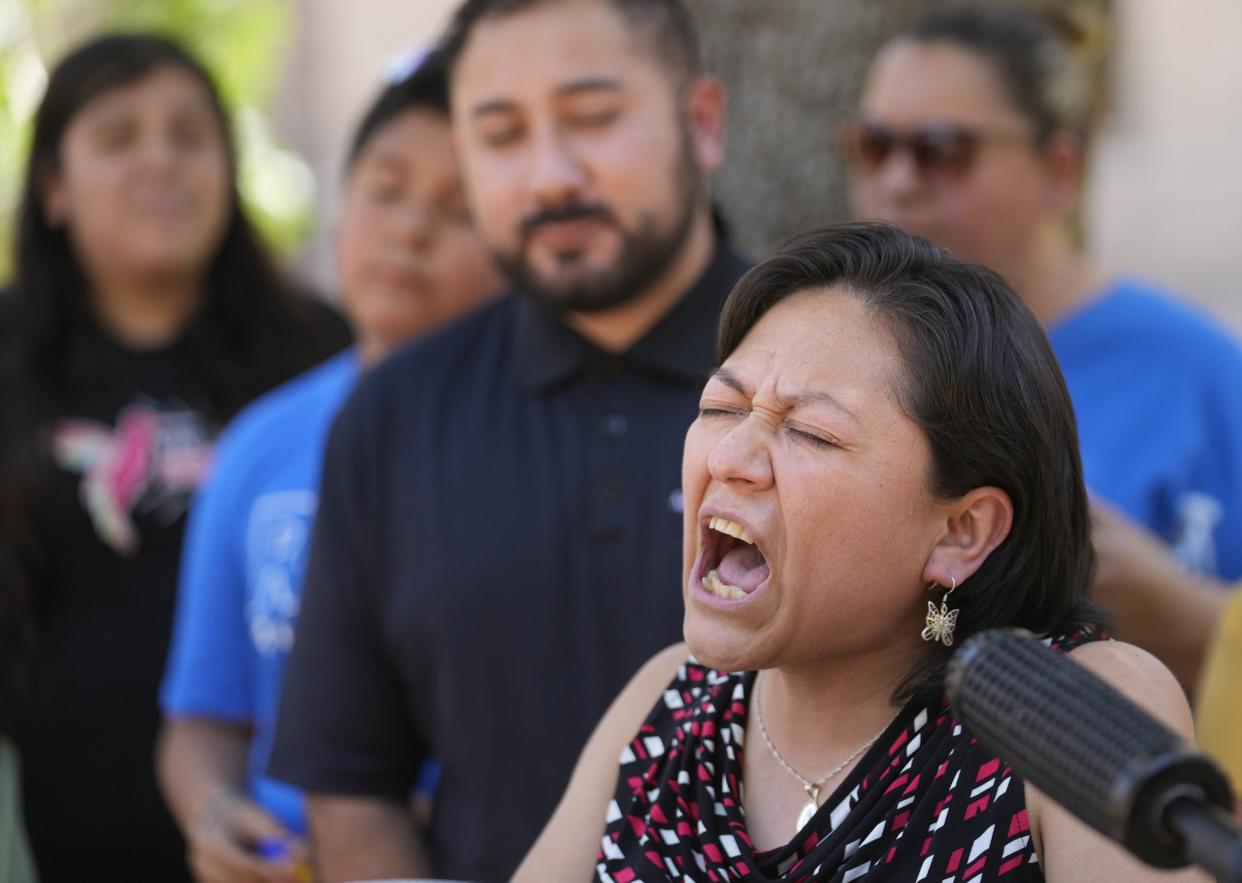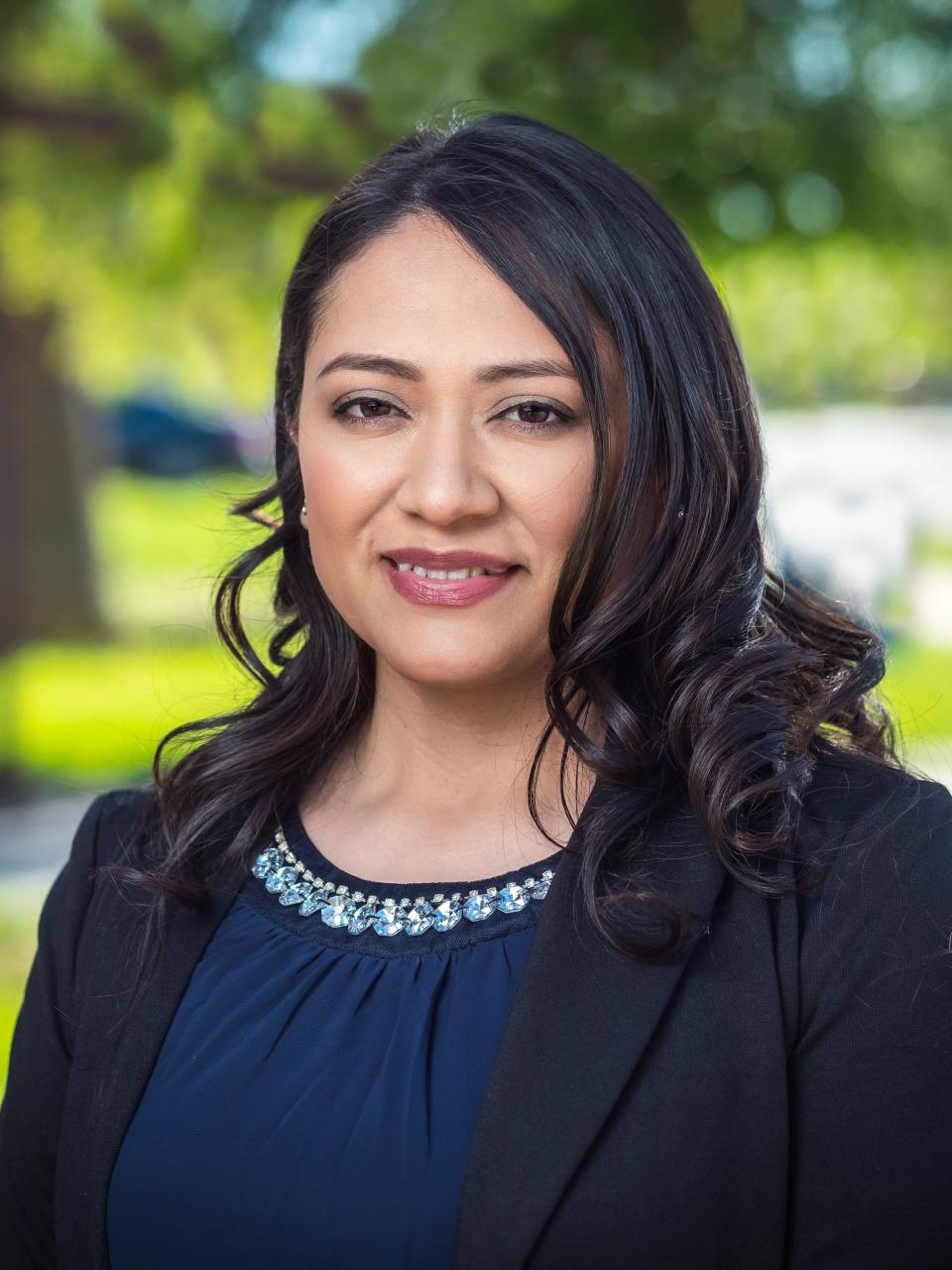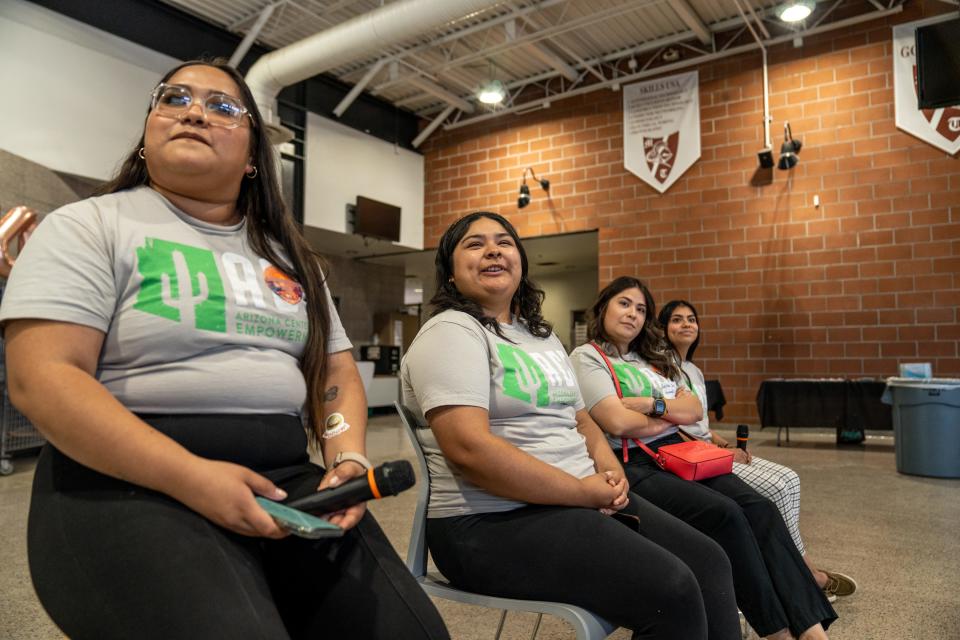'Limbo and uncertainty': DACA recipients prepare for the potential end of the program

When Karina Ruiz was 15 years old, she moved with her family to Phoenix from Mexico in 1999.
Now 39, Ruiz, a longtime recipient of the Deferred Action for Childhood Arrivals program, still has no direct pathway to U.S. citizenship.
As one of the 21,890 DACA active recipients in Arizona, according to March 2023 data from the U.S. Citizenship and Immigration Services, Ruiz often provides context to her long journey around her status in the U.S. by explaining that she “became a grandma waiting for the DREAM Act.”
Ruiz has raised three boys in Phoenix, all of whom are U.S. citizens, and one of whom has three children of his own. In addition to raising a family, Ruiz’s history in Phoenix runs deep.

She graduated from Sunnyslope High School in 2003 before she went on to spend 12 years working toward her degree in biochemistry at Arizona State University. Her journey took more than a decade because of her status as a DACA recipient. During the time Ruiz was working toward her graduation, non-citizen residents had to pay expensive out-of-state tuition, so graduation was delayed as she worked to afford the diploma.
A recent court ruling will send the fate of DACA to the U.S. Supreme Court. Because of the politicized nature of the high court, it's possible that it will affirm the lower court's ruling that the program is illegal. Ruiz is being forced to consider what will happen to her family, her property and her life in Phoenix.
For Ruiz and other recipients, that means beginning to save money to cover future legal fees, speaking with immigration attorneys, establishing power of attorney related to who would take care of their children, property and finances and having conversations surrounding potential relocation to avoid deportation or family separation.
More: As DACA turns 11, here's a look at what has changed for undocumented immigrants in Arizona
Adriel Orozco, a senior policy council at the American Immigration Council, said it may be “a little early for these conversations.” An argument before the Supreme Court on this case would likely happen in late 2024, with a decision announcement around May or June 2025, he said. However, Orozco suggested recipients should start to prepare.
Because of Ruiz’s status as a mother and grandmother, she has begun establishing a power of attorney for her children “in case we need to leave them with some other family member,” she said.
“That’s a constant fear that we’re going to be separated from them if we are deported,” Ruiz said.
'This is not an immigration issue': Once deported, this veteran is fighting to bring others home
A large conversation that many DACA recipients and their families are beginning to have surrounds possible relocation as moving back to their country of origin or being deported there doesn't seem like a desirable option for many recipients.
“From what I have heard from people, most of us are willing to stay in the States because it’s the place where we call home,” Ruiz said. “It’s not in the mind of most of us to return to our motherlands because, quite honestly, it’s not familiar to us.”
Because of violence faced by her family there, Reyna Montoya, 32, a DACA recipient and the founder and CEO of Aliento, doesn’t view moving back to Mexico, where she was born, as a viable option. Aliento is an Arizona-based organization that supports undocumented, DACA and mixed immigration status families.
“I don’t want to go back to Mexico; there’s so much trauma that happened with my family,” said Montoya, who has lived in Arizona since she was 10 years old. “I don’t want to leave home. (Arizona) is home.”
Paperless: Arizona sees largest drop in undocumented population in the U.S.
Montoya has considered other options, such as immigrating to another country with a friendlier immigrant-to-citizen pipeline, such as Canada.
However, other recipients view returning to their country of origin as the only way to keep their family together.
Karime Rodriguez, who became a DACA recipient as a teenager after her family moved to the U.S. from Mexico when she was 2 years old, experienced family separation as a teenager when her father was deported to Mexico, which “destroyed her entire family,” she said.

Rodriguez, 25, who received her green card this year thanks to her spouse petitioning on her behalf, has been working closely with recipients who want to avoid family separation at all costs.
“Some of my close family is considering moving back to our home countries because just the thought of family separation — never being able to see their kids again, never being able to see their spouses again — is something that they can’t live through,” said Rodriguez, the membership coordinator at Living United for Change in Arizona, or LUCHA, an Arizona-based organization with values around social, racial, and economic transformation.
While the recent ruling allowed active DACA recipients to continue to renew their status, the decision halted the ability for new applications to apply for the program.
As recipients, advocates and policy analysts await the Supreme Court’s decision, advocates are pushing for legislators in Congress to pass legislation to create a pathway to citizenship for recipients of the program.
Rodriguez wants a “pathway to citizenship that is clear, that is fair and that is clean,” she said. “I’m hoping that this motivates our legislators to finally give us the permanent solution that they’ve been promising us.”
Reach reporter Morgan Fischer at morgan.fischer@gannett.com or on X, formally known as Twitter, @morgfisch.
This article originally appeared on Arizona Republic: DACA recipients consider relocation as potential end to program looms

